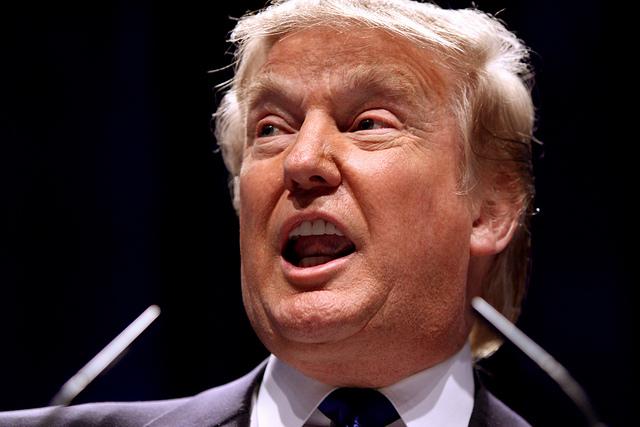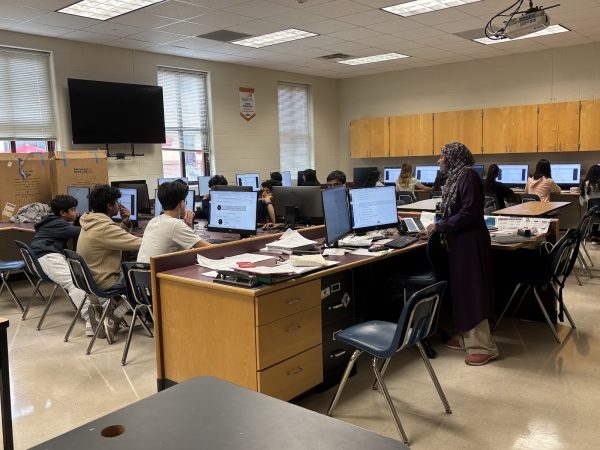A closer look at Trump’s travel ban
On January 27, Trump signed an executive order called, “Protecting the Nation From Foreign Terrorist Entry into the United States,” which barred citizens from Iran, Iraq, Libya, Somalia, Sudan, Syria, and Yemen from entering the United States. This ban is often referred to as the “Muslim ban,” because the countries involved are those with a Muslim majority. The federal appeals court later refused the ban from being reinstated on February 9th, much to the dismay of President Trump.
Trump has stressed the importance of the ban since his campaign, under the statement of serving and protecting the citizens of “America first.” This idea was seemingly connected to many of his proposals in relation to foreign policy.
Trump first stirred questions throughout the United States during a campaign at Birmingham in November of 2015. “I want surveillance of certain mosques,” Trump said in addition to suggesting a database of Syrian refugees. Many Americans supported any ideal to defend the U.S. from terrorism. Others were outraged, as it spread panic through many minority groups in the U.S. A couple of weeks after the rally, Vice President Mike Pence tweeted, “Calls to ban Muslims from entering the U.S. are offensive and unconstitutional.”
The calls to tighten security among refugees is not shy of Democratic supporters either. Two days before Trump’s campaign in Birmingham, the House of Representatives passed a bill which would limit and even halt the flow of refugees from Syria and Iraq. Forty-seven democrats voted in favor of the bill. Congressman Sanford Bishop Jr. was the only Georgia democrat that had voted for the bill, stating, “First and foremost, our most pressing responsibility is to protect the American people.” However, Bishop was opposed to the travel ban which was passed recently, which was the standpoint for all other democratic Georgia representatives. On the other hand, every GOP representative in Georgia supported the ban.
Many have been quick to point out that Trump has not banned Saudi Arabia, Egypt, or Afghanistan, countries whose migrants have been involved in terrorism. The majority of the hijackers from the September 11 attacks were from Saudi Arabia, and later enlisted in training camps in Afghanistan, where they fell under the influence of extremist groups. The recent Orlando nightclub shooting was carried out by Omar Mateen, of Afghani descent, while also being born and raised in the U.S. Trump has been accused of excluding Saudi Arabia, Egypt, and the United Arab Emirates due to his business connections.
With the exception of the San Bernardino shooter, Tafsheen Malik, there have been close to no post 9/11 terrorist attacks committed on U.S. soil which could be traced back to individual connected to Saudi Arabia. Meanwhile, 11% of terrorist attacks attempted or committed in the U.S. can be detained to Iran, Iraq, Somalia, Sudan, and Yemen. However, there have been no deaths from the hands attackers from any of the seven nations.
Although refugees have not posed a large threat in the United States, the same cannot be said for other countries taking in refugees. Assaults on women took place at many New Year’s celebrations this year in Germany, and the men carrying out the assaults have been traced back as refugees from the Middle East and Africa, which included those from Syria, Iraq, and Iran. An Afghani asylum seeker had also attacked and injured four people with a knife in Germany. This has brought to question of how nations can accept all asylum seekers and simultaneously insure the safety of its citizens.
America was built on people fleeing from persecution, and of people seeking freedom and safety. To this day immigrants to America have managed to assimilate into American society while maintaining many cultural values and practices. Yet, many refugees have had trouble adjusting to some American practices, For example, refugees have demanded to remove pork products from school lunches in Canada and Germany. In Pennsylvania, a group of refugees attempted to sue for better education.
Of course, banning so many people facing persecution seems extreme and overboard. After all, America comes from a country of justice and diversity. Yet, there are thousands of American citizens facing the issues concerning homelessness and poverty. Until, America can find a balance between bringing in immigrants and ensuring the best lives possible, Trump’s travel ban will remain a controversy.
Your donation will help support The Lambert Post, Lambert High Schools student-run newspaper! Your contribution will allow us to purchase equipment and cover website hosting costs.








